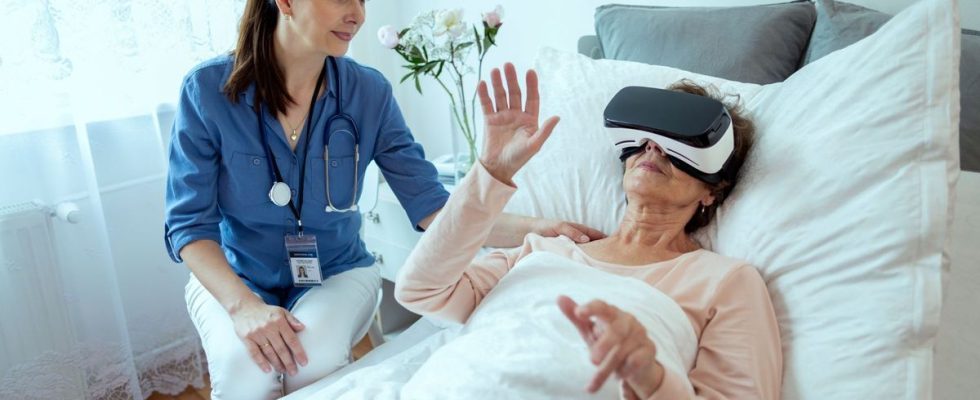Published on
Updated
Reading 2 mins.
in collaboration with
Lucie Joly (psychiatrist)
In the UK, virtual reality is increasingly being used to help patients with mental disorders. In France too, this technique is increasingly used, according to Lucie Joly psychiatrist at the Saint-Antoine hospital in Paris.
In the UK, the National Health Service (or public hospital service, editor’s note) uses virtual reality technology to help treat patients with mental health issues.
Via virtual reality software, patients create their avatar and enter a three-dimensional world. This experience allows them to confront past experiences, but they are not alone. Indeed, they are helped by a doctor, and this virtual reality allows them to express themselves while facing their discomfort but also in complete safety.
According to Dr David Rigby, Co-Chair of the Digital Psychiatry Special Interest Group at the Royal College of Psychiatrists, “there are many studies showing that virtual reality can help specific phobias like fear of flying or spiders by creating a digital representation of being on a plane or around spiders.” Technology tricks the brain into activating these phobia symptoms in a safe environment.
What about in France?
In France too, virtual reality headsets are increasingly used in psychiatry to help patients deal with their disorders. Dr. Lucie Joly, psychiatrist at Saint-Antoine Hospital in Paris, confirms that these helmets are still “a new approach“.”We have been hearing about it for three or four years, they are used for certain patients who are victims of mental disorders such as post-traumatic stress states, phobias, addictions or anxiety disorders. she details.
“Be careful not to use these helmets alone”
According to the specialist, it is really a “therapy by exposure to virtual reality”. In effect, “the patient will be confronted with his anxiety or his addiction, we can expose him to a bar for an alcohol-dependent patient, have him visualize an airplane or a highway, for example, depending on the phobia expressed… This really allows immerse the patient in a more flexible and controllable environment“explains the doctor, who recalls that these helmets have an increasingly accessible cost.
The only constraint, however: do not let the patient use these helmets alone. “It is essential that this type of exposure therapy is done accompanied by a doctor, the patient should not face it alone” she concludes.
